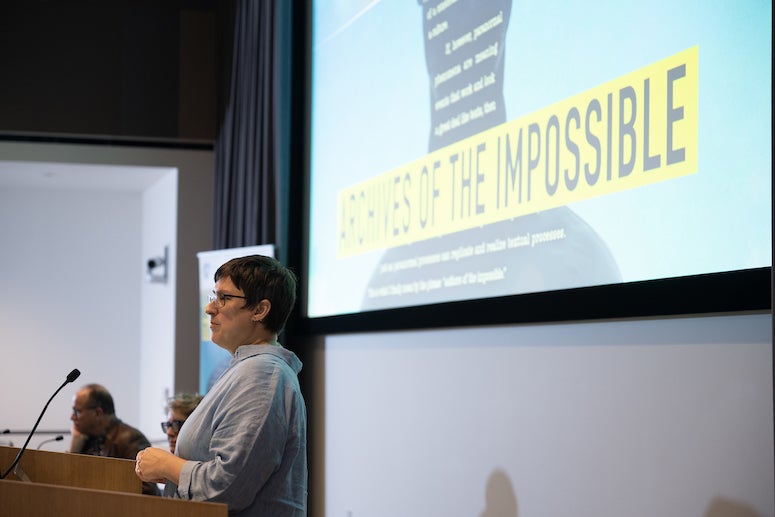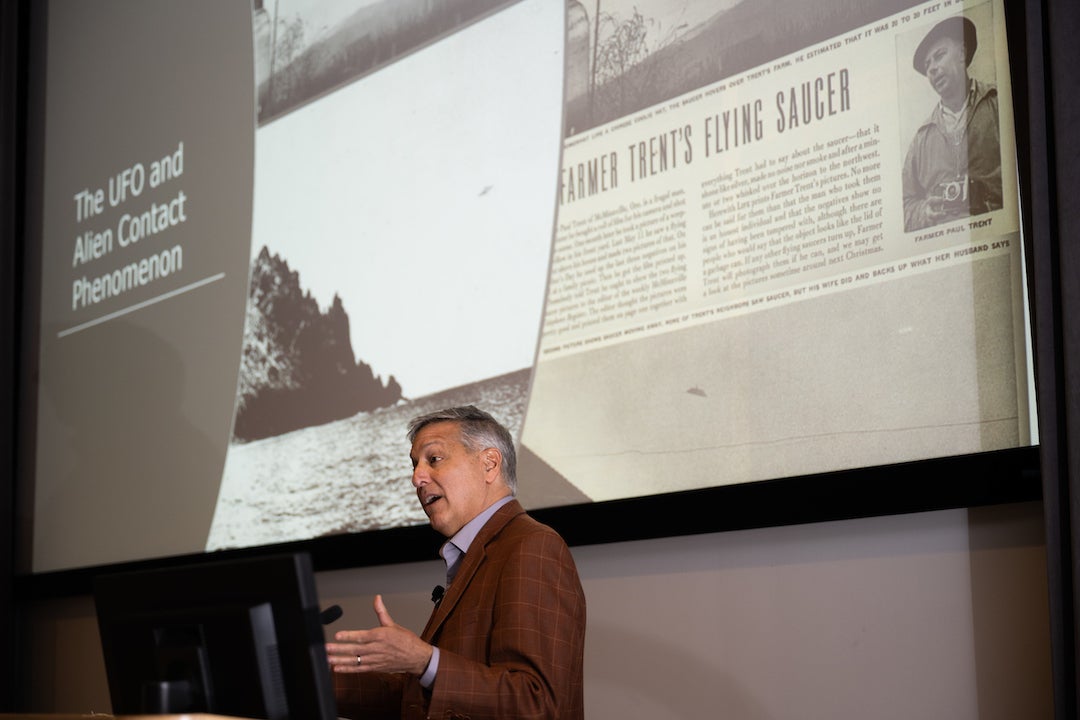
An international conference challenging assumptions about reality itself and exploring paranormal phenomena across different cultures and generations was held May 11-13 at Rice.
Titled "Archives of the Impossible: Transnationalism, Transdisciplinarity, Transcendence,” the second conference of its kind at the university featured speakers and panelists who set out to demystify the paranormal through their research and experiences regarding metaphysics, UFOs and much more.
Sponsored by the Department of Religion, Chao Center for Asian Studies and Department of Transnational Asian Studies in the School of Humanities and the Woodson Research Center in Fondren Library at Rice as well as the Esalen Institute, the event highlights the Archives of the Impossible housed at Woodson, which contain a treasure trove of documents donated by some of the world’s most well-known researchers of such phenomena.
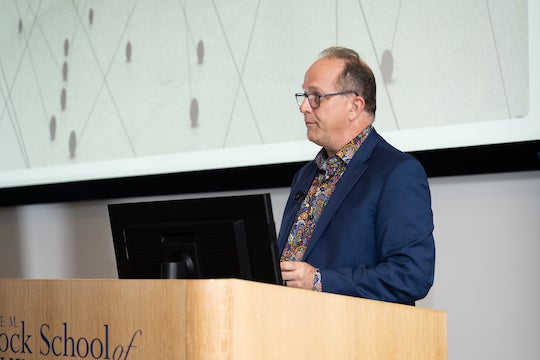
In the words of Jeffrey Kripal, the J. Newton Rayzor Professor of Philosophy and Religious Thought, School of Humanities associate dean and organizer of the conference, “very, very weird things happen. But that weirdness is a function of our limited assumptions, not of reality itself.”
Much like last year’s event, this year’s conference drew a large crowd, both in person and virtually. Held at Hudspeth Auditorium at Rice’s Glasscock School of Continuing Studies, the event attracted 200 in-person attendees and more than 330 online viewers, many of which followed up panels and plenary sessions with various questions.
“The impossible constitutes the deepest secret of human creativity and culture. And I do not mean that in a safe, metaphorical or simple way,” Kripal said during his opening remarks . “I mean that these extreme anomalous experiences, which are not supposed to happen but do all the time, lie somewhere close to the very wellsprings of human civilization in its various modes, from the history of religions, to the practice of philosophy, to our moral sensibilities, the arts, the sciences and the inventions of technology.”
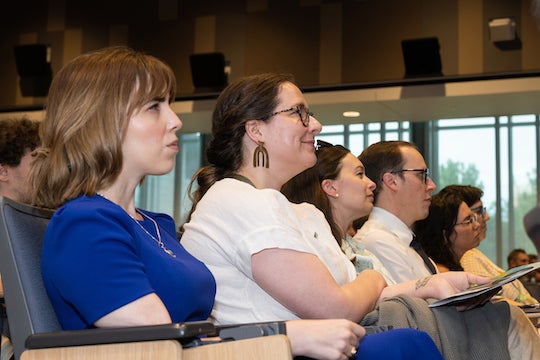
Speakers and panelists included renowned researchers, authors and filmmakers like Colm Kelleher, project manager for the largest government-funded UFO investigation in U.S. history; Stephen Finley, Rice alumnus and chair of the Department of African and African American Studies and associate professor of religious studies at Louisiana State University; and Kevin Lincoln, co-executive producer of “UFO,” a four-episode documentary series for Showtime by J.J. Abrams' Bad Robot Productions.
Kelleher, a research scientist who headed the Advanced Aerospace Weapon System Applications Program with the Defense Intelligence Agency from 2008-2010, recounted his experiences investigating UFOs and UFO effects on people during a flash session on the second day of the event.
He highlighted one particular occurrence while on the job at Skinwalker Ranch, a 500-acre ranch in northeast Utah reputed to be the site of various paranormal and UFO-related activities.
“Within a few weeks of arriving on the ranch, I had an encounter with a flying object that was very, very fast moving and came from the north over Skinwalker Ridge, which is a ridge that bounds the northern edge of the property,” Kelleher said. “It came right over our heads silently, brightly lit, and did a perfect hairpin turn right over my head with G-forces that would have made strawberry jam of most people in the cockpit, then turned around and went back where it came from.
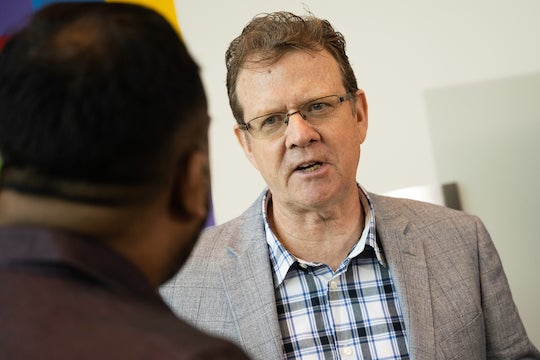
“It was one of those ‘holy s***’ moments. We were out there to investigate and document, but what happened that night sort of changed things for me.”
Finley was the conference’s second plenary speaker, presenting on his research regarding impossible phenomena and their relation to systemic racism, slavery and the Nation of Islam, citing his book “In and Out of this World: Material and Extraterrestrial Bodies in the Nation of Islam.”
“UFO phenomena are generally understood as universal, occurring all over the world and across time. The Nation of Islam is part of an African American UFO tradition that regards UFOs as specifically related to Black people and their existence in America,” he said.
The second day of the conference included the announcement of a monumental gift to the Archives of the Impossible from the John E. Mack Institute. A panel consisting of Kripal, Karin Austin, executive director of the John E. Mack Institute, Amanda Focke, head of special collections at the Woodson Research Center, and Anna Shparberg, humanities librarian at Fondren Library, was formed to present, detail and discuss the materials and how they will be utilized.
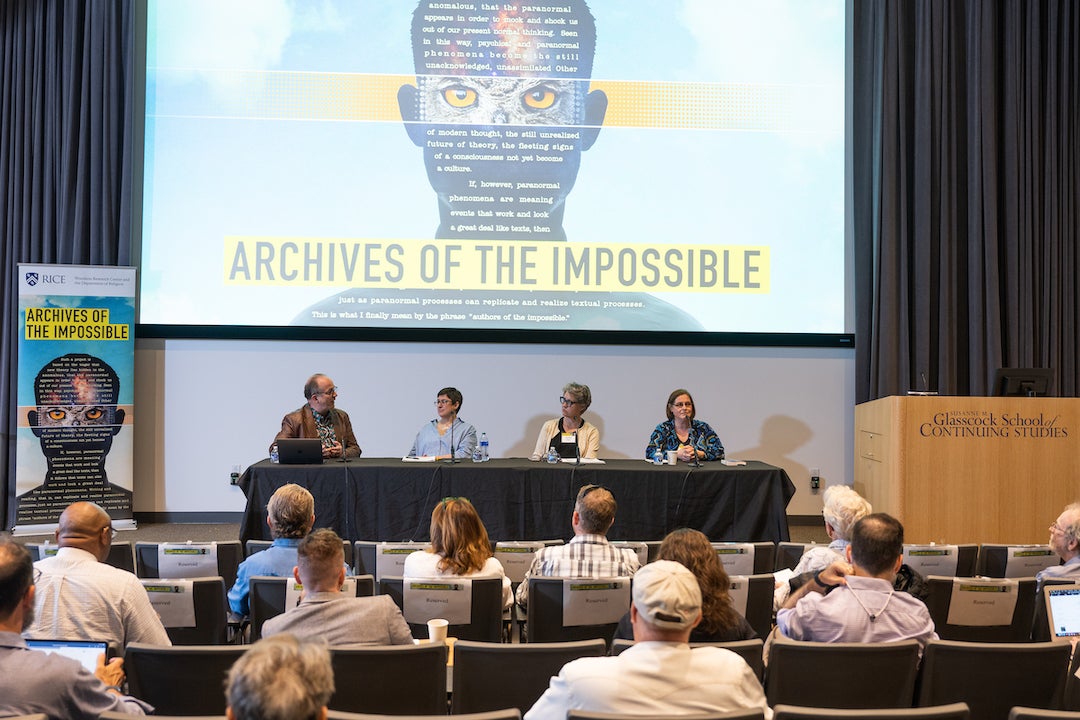
The late John E. Mack was an American psychiatrist, Pulitzer Prize-winning author and the head of the Department of Psychiatry at Harvard Medical School. He gained notoriety for his interest in impossible phenomena after publishing “Abduction: Human Encounters with Aliens,” a book containing a case series of 13 patients who claimed to have encountered alien life forms.
The institute’s gift includes over 100 boxes, each containing hundreds of pages of documents chronicling research and interviews conducted for some of the numerous books and essays Mack authored.
The institute sought a new home for the materials because of concerns over Harvard Medical School’s assumption of copyrights on the donations and use of Mack’s research.
“Given their negative response to John's work with experiencers and his writings about their contact encounters, it was clear that Harvard was not a suitable home for John's collection of experiencer tapes, transcripts, letters and unpublished related research,” Austin said. “Alternately, after numerous conversations with Jeff (Kripal) and Amanda (Focke), it was equally clear that Archives of the Impossible was in fact the perfect home for John's materials.
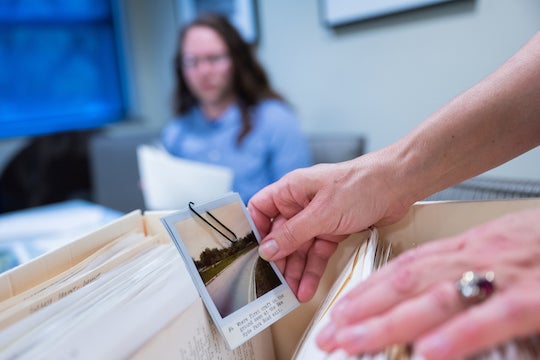
“It is my hope that we will find the courage and funding to carry on (Mack’s) work and in so doing help facilitate humankind's transition into a new age of consciousness, wherein the human heart and mind achieve the coherence needed to perceive an expression of reality, intelligence and love greater than we ever imagined could exist beyond the veil of our material world.”
Mack’s archives will be made available to the public after anonymization work to protect his former patients’ information is complete.
To learn more about the Archives of the Impossible, click here.

